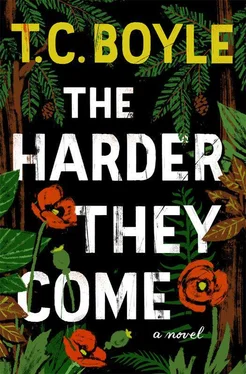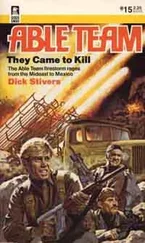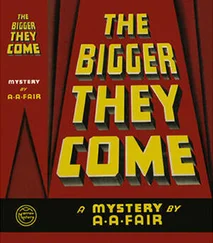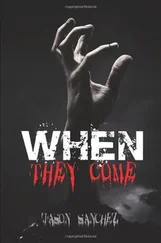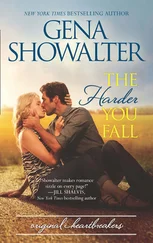“Kutya,” she called, “Kutya! Stop it now!” But when she tried to get up out of the chair and take him by the collar, the cop shoved her back down. “Hands!” he roared, and he had his gun trained right on her.
She was scared, had never been so scared in her life, but she couldn’t help throwing it back at him nonetheless, “How am I supposed to control him if I can’t even—”
“Shut the fuck up,” that was what he said, or snarled, and then another cop had one of those muzzle things on a stick and seized hold of the dog’s snout and the barking abruptly stopped.
It was right around then that she began to reconsider. There were cops everywhere, stalking through the kitchen, the bedrooms, their guns held out rigidly before them and laser lights poking red holes in everything — but why? Why would there be such a show of force over a woman who wasn’t wearing her seatbelt? Even if she hadn’t shown for her court date? Even if they knew she’d destroyed a police car, which, it became obvious to her in that moment, they didn’t. .
Another cop was there now, a bald-headed one, tailed by a deputy who looked all of twelve years old, and why did everybody have to shave their heads, was it some sort of cops and robbers sort of thing? He stood there a moment, just out of range of the one who’d pinned Kutya down with the muzzle-stick, staring at her. “Sara Hovarty Jennings?” he asked.
She couldn’t do much more than just nod yes, her heart going like the StairMaster set on Alpine, but the words were on her lips— Threat, Duress and Coercion —and if he didn’t back off she was going to start screaming and they could just go ahead and shoot her, but she surprised herself by finding her voice long enough to frame her own question in as nasty a voice as she could muster, “You got a search warrant?”
The cop ignored her. He swung his head in Christabel’s direction, Christabel who was sitting right there beside her, her hands in the air still. “And what’s your name?”
Poor Christa. She was so scared she could barely talk Or she couldn’t, she couldn’t talk at all.
“You can put your hands down,” he said, softening his voice, “both of you.” He was short, this cop, as nondescript as if he had his face on backwards, but he seemed to be in charge, and he had some sort of decoration or whatever it was sewed to the shoulder of his uniform. “Now, once again, you ”—nodding at Christabel—“I asked your name.”
“Christabel Walsh? I’m a teacher’s aide?” She started to say where she worked, as if the name of the school would carry any weight, but her voice got choked in her throat and she couldn’t go on.
And now one of the other cops, the one who’d been in the bedroom, going through her personal things, clomped into the room and announced, “All clear back there. Nobody here but these two.”
“You go out there and check that yard, every blade of grass, hear me? Fence lines, all the fields around here. Get the dogs on it.”
“Yes, sir.” And that cop was gone, out the door and into the yard where lights were at war and voices stalked around the corners.
It was then, just then, in the interval before the chief cop turned back to her, that she began to understand. “Is this about Adam?” she asked, and why she asked she didn’t know — it was just some snaky intuition that made her heart hammer even faster and the fish go sour on her stomach.
At first the cop questioned them both together, but then, after he’d asked Christabel what sort of person Adam was and she’d said, “I don’t know, regular, I guess, maybe a little weird — he’s a nudist, I mean, sometimes, anyway,” the cop called one of his men over and said, “Why don’t you take her out in the kitchen and see what she knows. I’ll take care of Sara here myself.”
What he did then, with the lights flashing outside and cops all over the place as if this was some kind of war zone, was plunk himself down in the chair Christabel had just vacated, then scoot it over so that he was right there in her face, their knees practically touching. “You know, Sara — is it all right if I call you Sara? You know, I don’t really think we have to get upset here or anything — or take this down to the station either. I just want to ask you a couple questions. About Adam.”
“What did he do?”
“Why don’t you just let me ask the questions, okay? This doesn’t have to be hard. It’s not going to be hard. As long as you cooperate, you understand me?”
What she felt then, under threat, duress and coercion like nobody could believe, was just the faintest breath of release: they hadn’t come for her, they didn’t care about her or her dog either. All they wanted was Adam. But why? What had he done? Sitting there knee-to-knee with the cop and the fire snapping and Christabel shunted away to the kitchen with another cop, she tried to picture him, and what she saw was his body greased with sweat, his arms, his bare arms, and the knife at his side. And the gun. The gun.
“You saw him last, when? Two nights ago, is that right? Wednesday?”
She just nodded. She flashed on that day in the car, the day she’d met him, when he’d gone ballistic over the sight of a cop car going in the opposite direction. But what had he done? They wouldn’t bring a thousand cops around to swarm all over her if it wasn’t the worst, but what was the worst? What was the worst thing you could do? She felt her scalp prickle. She could barely breathe.
“And he left Thursday morning, early, before you were up?”
“Yes.”
“He say where he was going?”
“I don’t know, the woods. I think he was, like, living out there.”
“What about his rifle, did he take his rifle, did he have it here? With him, I mean?”
“He always had it.”
The cop was silent a minute, as if mulling this over, Adam and his rifle. Then he leaned in nearer so that she could see his eyes up close, the little dance of his pupils. “You took him to the hospital, why was that?”
“He asked me to. He had the — the runs. Giardia.” Kutya had been still, but now, in the far corner of the room, he began struggling again, though the cop there held him firmly down. “This isn’t right,” she said. “I don’t have to talk to you. And I’m not going to say one more word until you tell me what this is all about.”
Another silence, longer this time. The way he was watching her creeped her out, as if he was some kind of god looking down on the littlest thing in his creation, a bug or bacterium, when in fact he was just another tool of the system. “You want to get cute, I can arrest you right this minute.”
She didn’t want to push it, but she couldn’t help herself, because this was just sick, the whole slimy police-state Heil Hitler crap that had brought Jerry Kane down and was bringing her down too. “For what?”
“Oh, I don’t know,” he said, shrugging. “Accessory to murder. How does that sound?”
Everything seemed to stop right then, the stomping, the hollering, the banging of her heart and the whimpering of the dog, replaced by a long slither of white noise hissing in her ears. What the cop told her was that Adam had shot somebody while he was on his sojourn out there in the woods, shot him and left him for dead, and that everybody had thought the Mexicans had done it, but it wasn’t the Mexicans at all. It was Adam. Proof positive. Adam had shot somebody and then he’d got sick and come to her, to her bed, and she’d washed his clothes for him and let him make love to her and he never even so much as mentioned it. As if people were nothing, as if you could just go around shooting and then drink bourbon and cook beef stew over a campfire as if it was the most ordinary thing in the world. She didn’t know what to say. She was in shock.
Читать дальше
